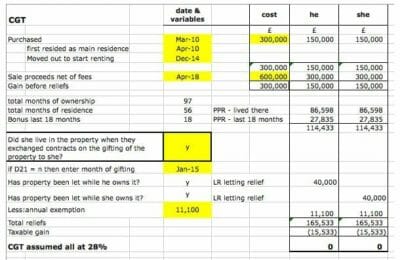If you’re a politician, you have to be very mindful of the law of unintended consequences. Famously, different states in the US introduced compulsory seatbelt laws at different times. In the states that passed the legislation early, people wearing seatbelts were more likely to survive a collision. However, at the same time, people in those states became more likely to be involved in an accident. It’s thought that wearing a seatbelt gave some drivers a false sense of security. Now that the UK government has declared that it want to ban landlords and letting agents from accepting more than one month’s rent in advance, one can’t help but wonder whether the law of unintended consequences is waiting in the wings.
What’s happening to rent in advance payments?
The proposed changes to the rent in advance rules have made their way into the Renters’ Rights Bill. While it is currently making its way through parliament, a new amendment will cap rent in advance payments to no more than a month.
Why has this change been made?
There’s a sensible rationale behind the change. In some instances, landlords or letting agencies currently ask for 3, 6 or even 12 months’ rent in advance.
The problem with this is when landlords or letting agents essentially create bidding wars. Keen to get more money upfront, they may decide to award a tenancy to someone who can pay the most rent in advance.
This puts people with lower incomes and fewer savings at a disadvantage. It can also cause problems for the successful tenants. By offering several months’ rent upfront, they can easily stretch their finances and savings to a dangerous point.
For this reason, landlords and lettings agencies will face £5,000 fines if they ‘set tenants against each other.’ Other changes will protect tenants from ‘unreasonable requests’ for large upfront payments.
Housing minister Matthew Pennycook has also announced that there will be other changes to the Renters’ Rights Bill. One will ensure that tenants will ‘continue to be protected from unreasonable requests for rent to be paid early, once a tenancy has commenced.’
What will landlords be able to charge?
Under the new law, landlords and lettings agents will be allowed to charge up to one month’s rent in advance. In addition, they’ll be able to ask for a security deposit of up to six weeks’ rent.
Why the law of unintended consequences?
When I first read about the new rent in advance rules, it put me in mind of a friend of mine. Some years ago, she went through a painful divorce. She decided to move with her two children from the East Midlands to the South West of England. The idea was to be near her aunt, who was very supportive.
However, because her husband had been the main wage earner, she didn’t have enough income to easily qualify for a private tenancy. She did, though, have some money that came from selling and splitting the profit on the family home.
This allowed her to solve the problem. Because she was able to offer six months’ rent in advance, she secured a rental property. This allowed her to get her life back on track before moving on a year a so later.
Under the new laws, it’s much less likely she would have found a landlord willing to rent a property to her. My worry is that the rent in advance changes risk making people homeless, leaving local councils to pick up the pieces.
Industry agreement
The Daily Mail reports that organisations in the housing industry agree with my analysis. Groups including Propertymark, The National Residential Landlords Association and British Property Federation say that the changes ‘risk making access to rented housing harder for the very people we want to support’.
What next for rent in advance?
Given the present government’s parliamentary majority, the rent in advance changes will almost certainly become law. If you are a landlord, you need to be aware of them so you can comply in the future.
Most landlords will be disappointed by this latest restriction on their letting practices. The last few years have put enough pressure on them as it is. That’s why it’s important to get as much value from your portfolio as you can. As the accountants for landlords, THP is here to help you. To learn more about special Landlords Platinum Accounting Service and all the benefits it offers you, get in touch with a member of our team today.
About Ben Locker
Ben Locker is a copywriter who specialises in business-to-business marketing, writing about everything from software and accountancy to construction and power tools. He co-founded the Professional Copywriters’ Network, the UK’s association for commercial writers, and is named in Direct Marketing Association research as ‘one of the copywriters who copywriters rate’.
More posts by Ben Locker











